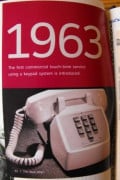Baby Boomers Aren't as Healthy as We Previously Thought
Introduction
Life expectancy has been slowly rising year after year in the West, but it has recently stalled for the Baby Boomers. It turns out that Baby Boomers aren’t as healthy as we previously thought. Let’s look at the hard numbers involved and long term impact this will have.

The Mixed Bag on Cardiovascular Health
Smoking has been on the decline for a number of years. This means that far fewer Baby Boomers smoke than their parents did. Conversely, Baby Boomers are fatter than their parents, so the decreased risk of heart disease from lower smoking rates is offset by the greater risk of cardiovascular disease due to obesity. Almost 40% of Baby Boomers were obese, while nearly 30% of their parents were. This was reported by a University of Toronto paper in 2015. However, they’re less likely to have an outright heart attack. Yet Baby Boomers are more likely to have high blood pressure, raising the risk for related complications later in life. They also have a six times higher rate of high cholesterol.
Diabetes
About 13% of Baby Boomers said they were in excellent health in middle age. In contrast, a third of their parents reported the same in their middle age. Diabetes is a major culprit; 16% of Baby Boomers have diabetes compared to 12% of their parents’ generation at the same age. Given current trends, there will be at least 50% more seniors with diabetes than the prior generation. This is bad for our public health system, since someone with diabetes costs 2.5 times as much in healthcare costs as someone without it.
Mobility
Baby Boomers are not as mobile as their parents, and that’s just looking at the cohort between ages 50 and 64. Baby Boomers are twice as likely as their parents to be using a cane or walker. A major difference is that Baby Boomers are more likely to sit a lot, whether because they sat in a chair for work all day or drove instead of walked places. And they’re less likely to exercise compared to their parents.
Addiction
The opioid epidemic is so bad that the spike in overdose deaths since 2000 has brought down the average life expectancy for working class whites with only a high school education. However, addiction itself is not limited to this demographic. Baby Boomers have a higher rate of drug and alcohol use compared to their parents, and we’re not just talking about the occasional use of recreational marijuana. One potential issue is the higher rate of reported pain and disability reported by late middle age working class whites, reporting severe back pain and depression are ways to secure opioids to supply an addiction.
And there is, clinically speaking, little difference between chronic pain and depression for those who have lost their jobs and been unable to find work. Claiming disability due to difficult to prove conditions like back pain and depression provides both a stream of income through disability benefits and access to drugs to allow the person to feel better.
Summary
A smaller percentage of Baby Boomers are in excellent health at this age compared to their parents at the same point in their lives. While there are many reasons why they may be in worse overall health, the known trends suggest that they’ll need far more healthcare than their parents by the time they’re in their 70s. And while they claim 60 is the new 40, we shouldn’t expect them to live years longer than their parents.








